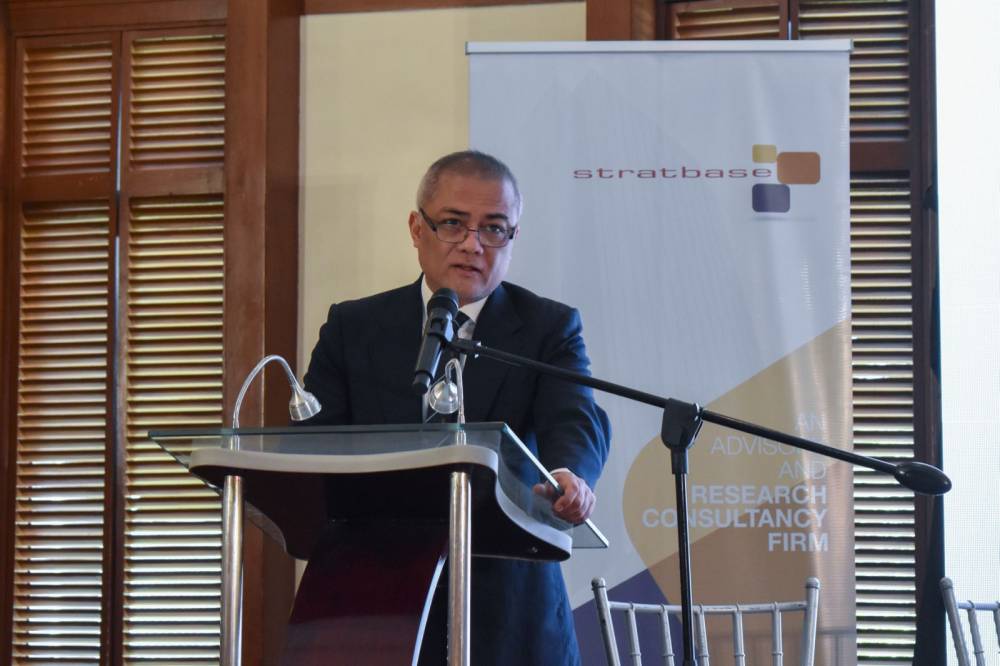A PH spaceport? PhilSA seeks partners to make it happen

The Philippine Space Agency (PhilSA) is looking for a public-private partnership (PPP) to build the country’s first spaceport, in a bid to promote the Philippines as a strategic launch site in the expanding international market of space development.
The agency, established in 2019, submitted a proposal to the PPP Center on July 3, presenting its vision for developing the country’s “capabilities in launching assets into space” and touting the Philippines as a “safe and sustainable gateway.”
President Marcos himself is pursuing that goal, according to PhilSA. Only last month during his visit to Expo 2025 Osaka, he met with officials of the Japan Aerospace Exploration Agency (Jaxa).
“We’re working with Jaxa, together with our very own PhilSA to use space technology that helps protect and improve the lives of Filipinos,” Mr. Marcos said, as quoted by the agency.
PhilSA Director General Joel Joseph Marciano Jr. said in a statement: “With the right public-private model, the Philippines can be an active part of this global value chain, not just a passive consumer of space services.”
Prioritizing locations
In response to the Inquirer’s questions via email, PhilSA said there has been “manifest interest” among other potential partners during the initial discussions on establishing a spaceport.
The Philippines is a prime spot for spaceports, the agency said.
“The Pacific Ocean to its east and the Celebes Sea to its south … offer vast unpopulated areas that can serve as safe downrange zones, mitigating the risk of rocket launches to populated regions,” PhilSA said.
The agency said it is prioritizing locations on the eastern or southeastern seaboard that offer existing roads, airstrips or seaports to aid logistics.
Explaining the science behind the country’s location, PhilSA said rockets launched eastward gain a velocity boost from the Earth’s rotation, making takeoff more fuel-efficient.
Global interest
“For this purpose, the Philippines’ location near the equator therefore serves as an advantage,” the agency said.
PhilSA noted the timeliness of pursuing a PPP space project, amid the increasing global interest in space tourism and other near-Earth orbit enterprises.
On the topic of a developing country like the Philippines establishing a space program, PhilSA Deputy Director General Gay Jane Perez said “This isn’t just about space. It’s about transforming the Philippine innovation ecosystem.”
The spaceport, a first in the country, would also serve as its first economic or industrial zone geared toward space, she said.
“We are talking about new jobs, new manufacturing lines, new logistics corridors—and potentially becoming a regional hub for launch services,” Perez said.
Innovation, technology
The agency said a project like the spaceport is “aligned with the goals of the Tatak Pinoy Act (Republic Act No. 11981).”
The President signed that law in February last year as part of his administration’s efforts to promote innovation and technology in the pursuit of economic growth.
“A spaceport can enhance the complexity of products and services offered by the Philippines by stimulating demand for high-tech, high-value goods and driving innovation and technology transfer,” PhilSA said.
‘Foreign allies’
Perez said the agency is also “cultivating interest from foreign allies,” as she cited US Defense Secretary Pete Hegseth’s first visit to the country in March.
“During the visit … [Director General] Marciano brought up how the alliance between the Philippines and the US can be expanded beyond land, sea, and air and into space, such as through spaceport development and launch sites in the Philippines,” she said.
PhilSA said a partnership with the United States would be vital in tapping that country’s “mature spaceport ecosystem, [which] could serve as one of several models to inform our own development efforts.”

















